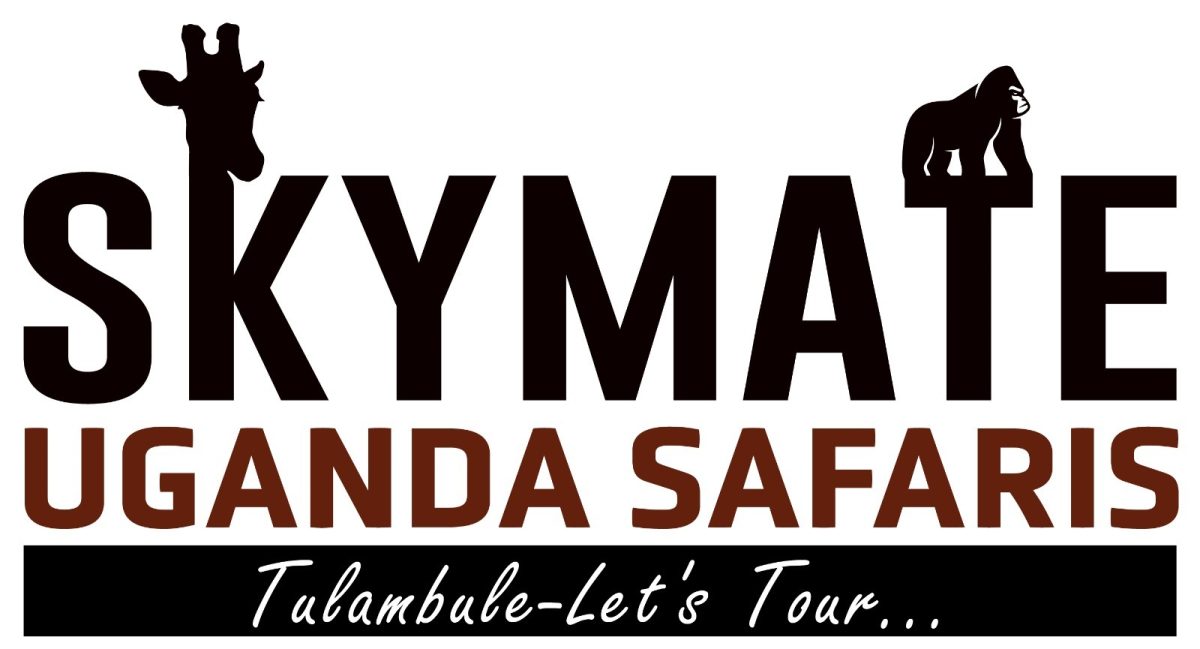Kenya safaris takes you to a place where modern day the safari began. Here, African mega-wildlife, including the Big 5 animals roams endless savanna plains.
Elsewhere, landscapes in Kenya stir the soul with dense forests in the west, semi-deserts in the north, Great Rift Valley lakes in the center and tropical Indian Ocean coast out east. This result for those on Kenya safari tours is an experienced safari industry ready to show you a seemingly endless display of wildlife against one of the most beautiful backdrops in Africa.
Kenya safaris also combines well with a relaxing beach holiday and gorilla trekking tours in Uganda and Rwanda. You can also combine your Kenya tour with a safari in Tanzania or a Zanzibar holiday for a chance to experience the all best that East Africa has to offer.
Best Kenya Safaris Packages
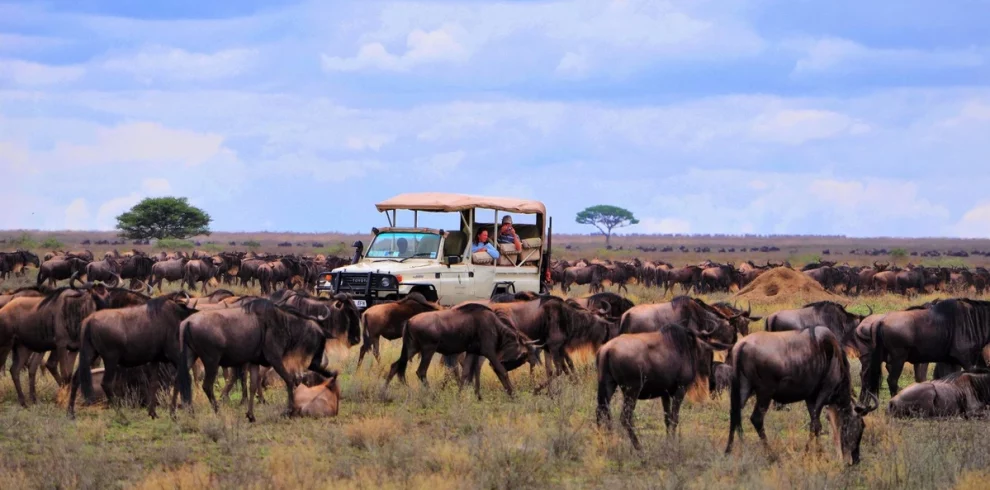
7 Days Kenya Safari | Culture, Landscapes & Wildlife
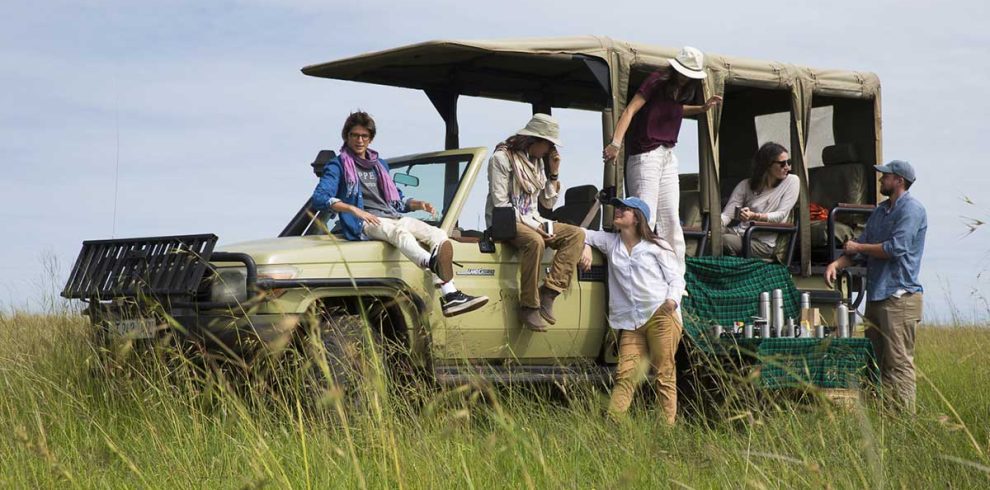
11 Days Kenya’s Big 5 & Conservancy Safari
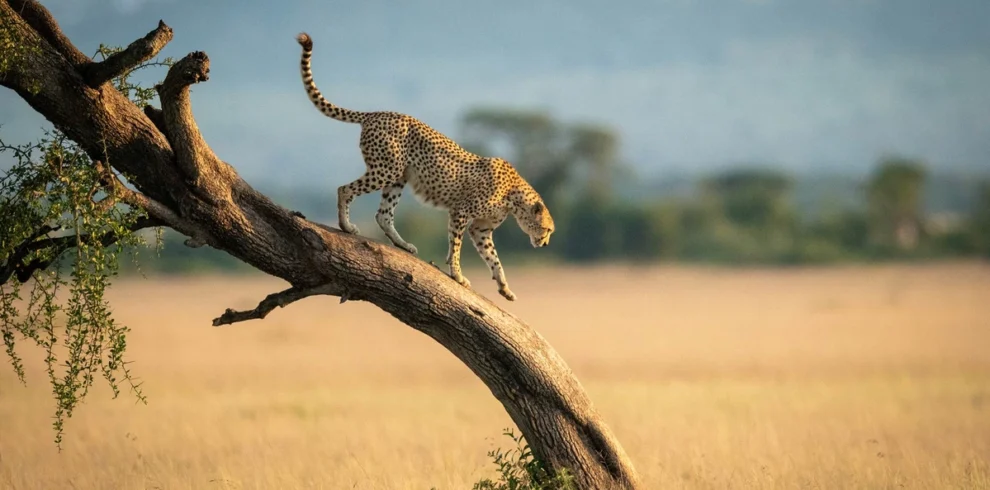
8 Days Wildlife Safari in Kenya | Spot cheetahs & the Big 5
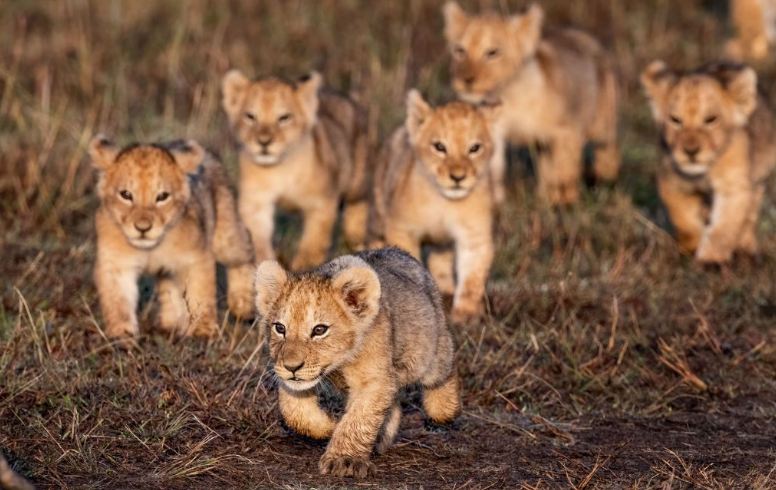
3-day Masai Mara safari – Kenya Wildlife Safari Tour
Combined East African Safaris Featuring Kenya Tours
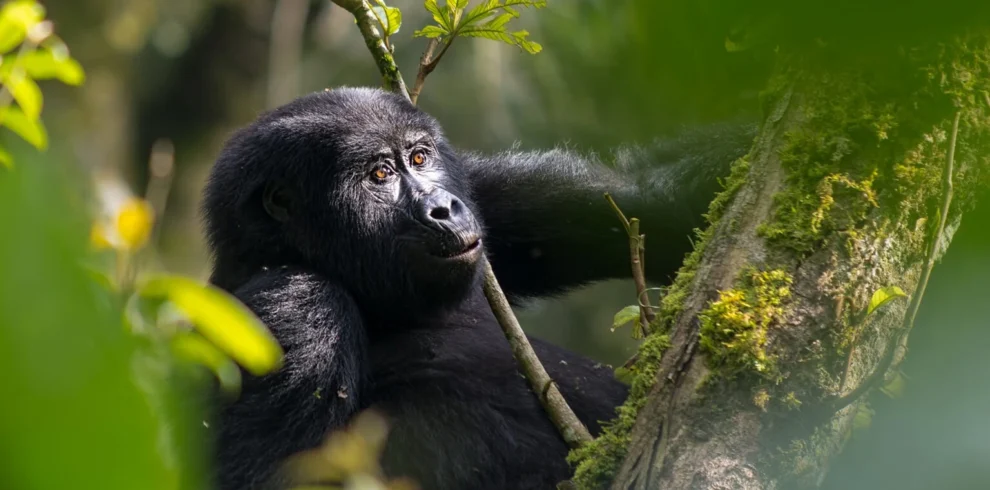
8 Days Uganda and Kenya Safari: Gorillas & Big Five
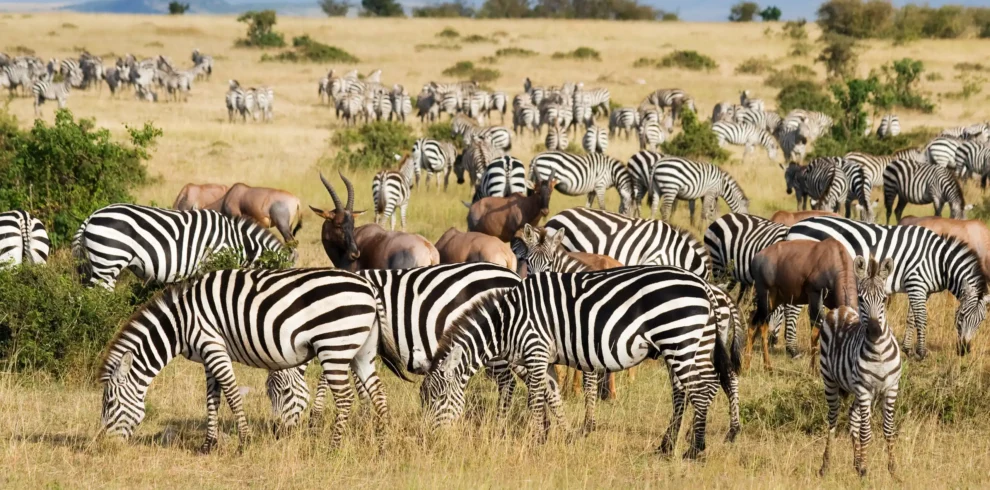
20-Day Uganda, Kenya & Tanzania Safari Vacation
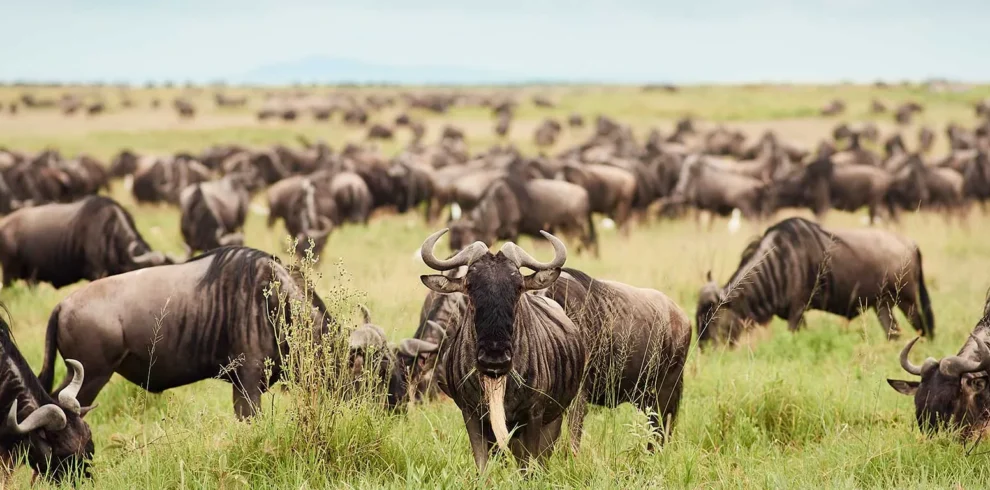
13 Days Uganda, Rwanda and Kenya Safari
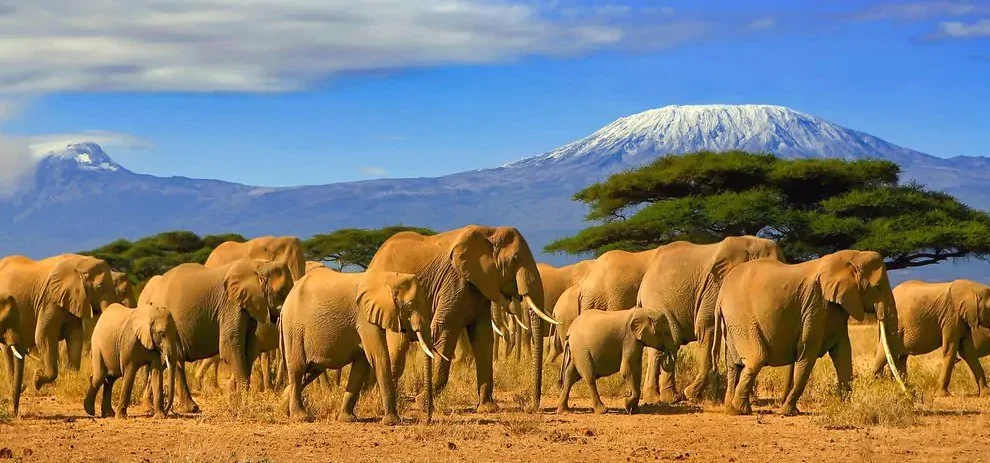
12-Day Uganda Kenya Safari: Gorillas, Big 5 And Culture
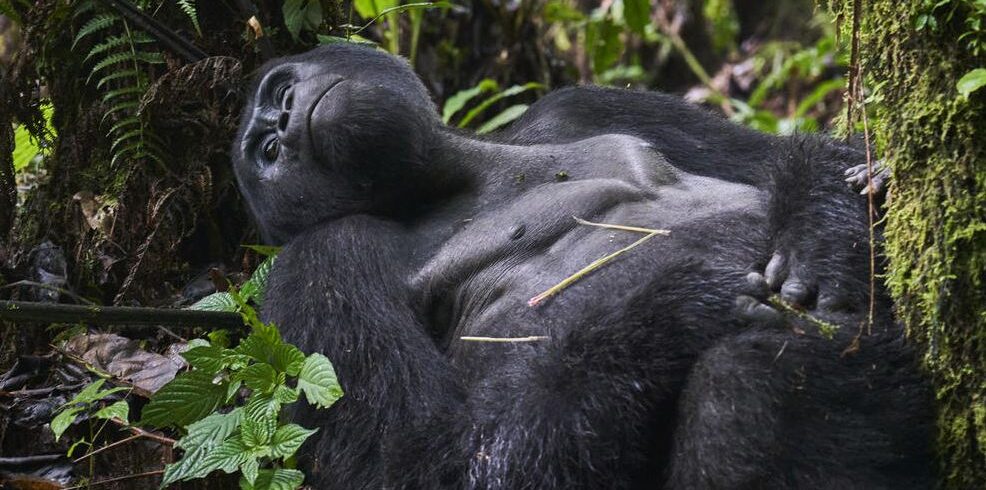
15 Days East Africa’s Gorillas, Chimps, Safari & Beach Holiday
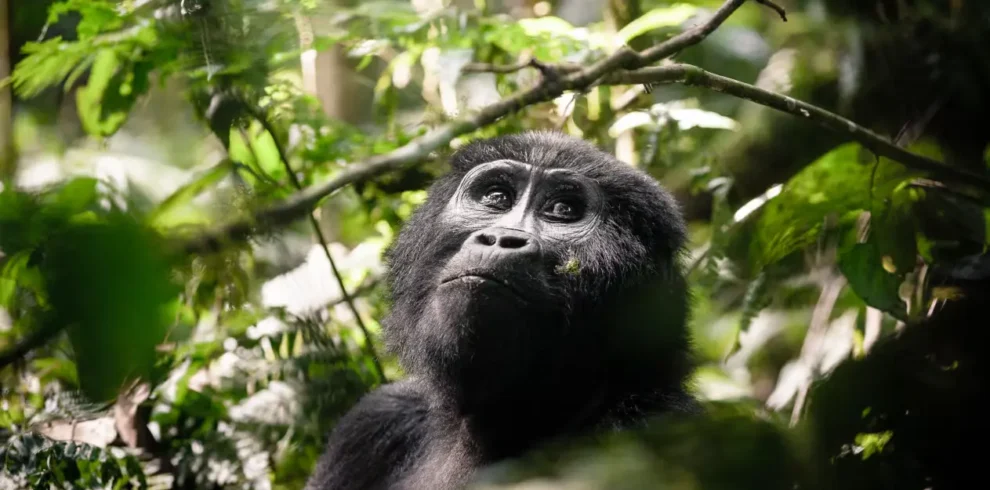
10-Day Uganda And Kenya: Gorilla & Big 5 Safari
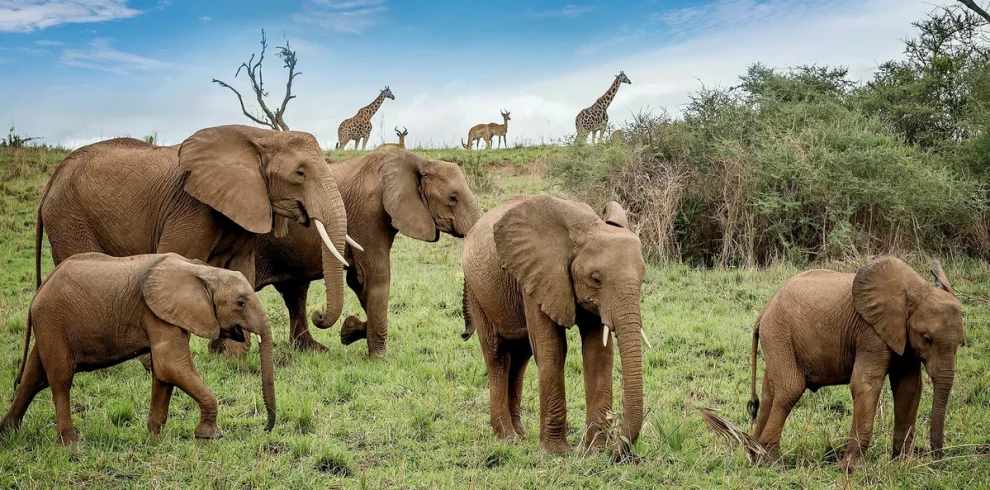
10-Day Kenya Tanzania Safari, Masai Mara, Serengeti, Ngorongoro & More!
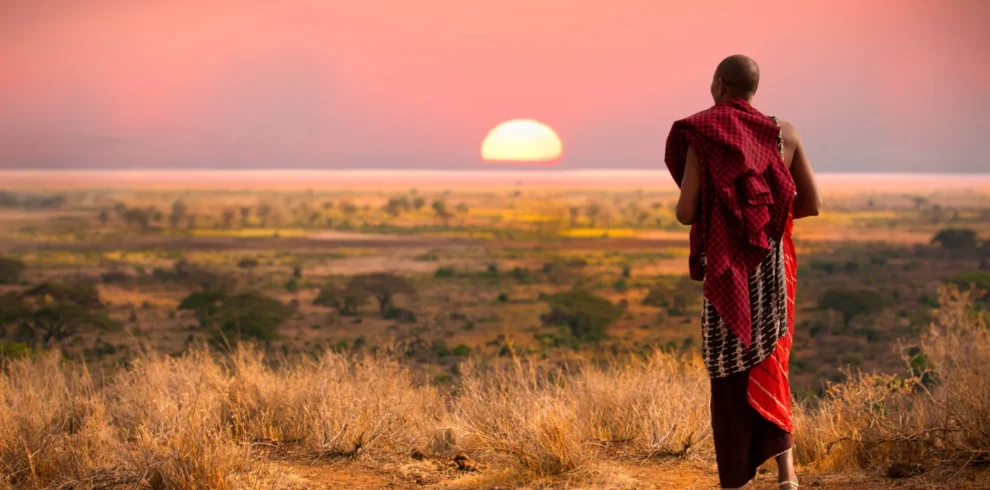
17 Days Uganda, Kenya and Zanzibar Tour
Kenya Safari & Beach Holiday Packages
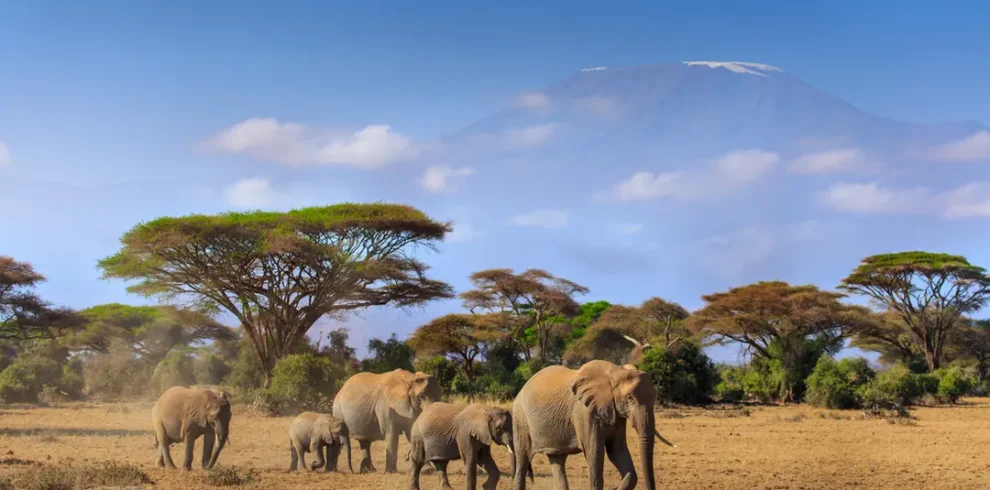
9 Days Amboseli to Mombasa Beach Safari Holiday
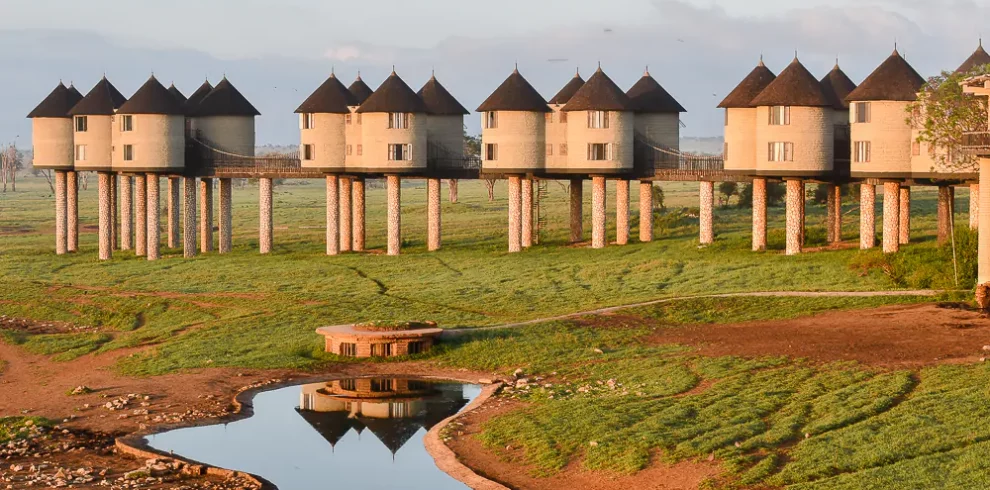
8 Days Nairobi, Tsavo & Mombasa Road & Rail Tour
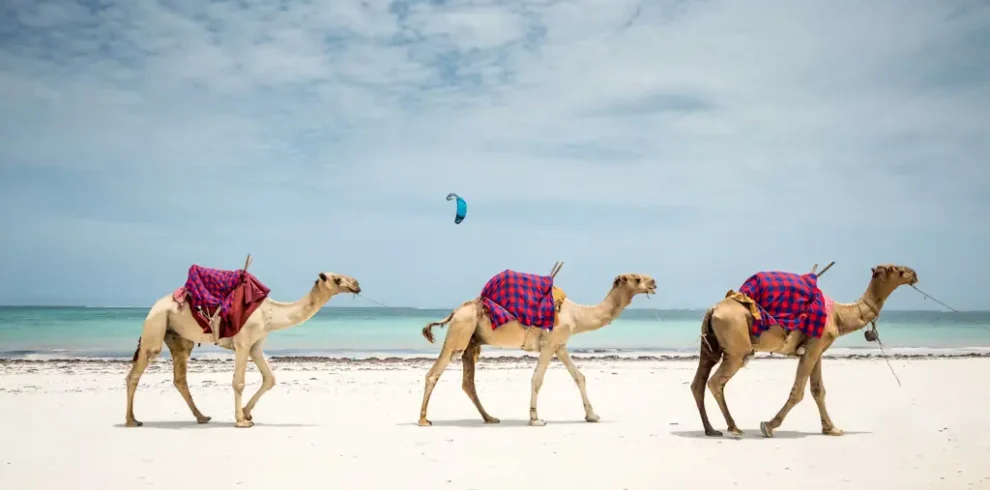
6 Day Mombasa and Diani beach Holiday in Kenya
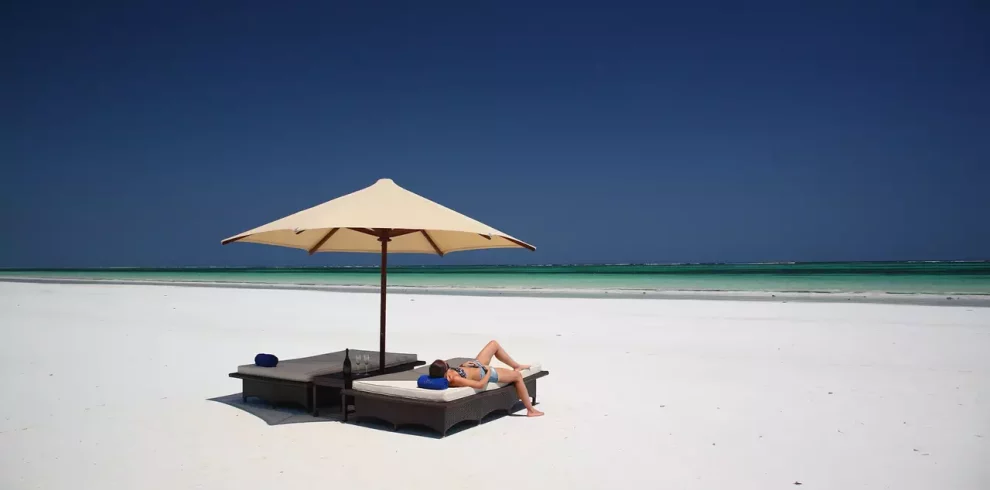
5 Day Mombasa Holiday in Kenya
Where to go in Kenya | Best Kenya Safaris Destinations
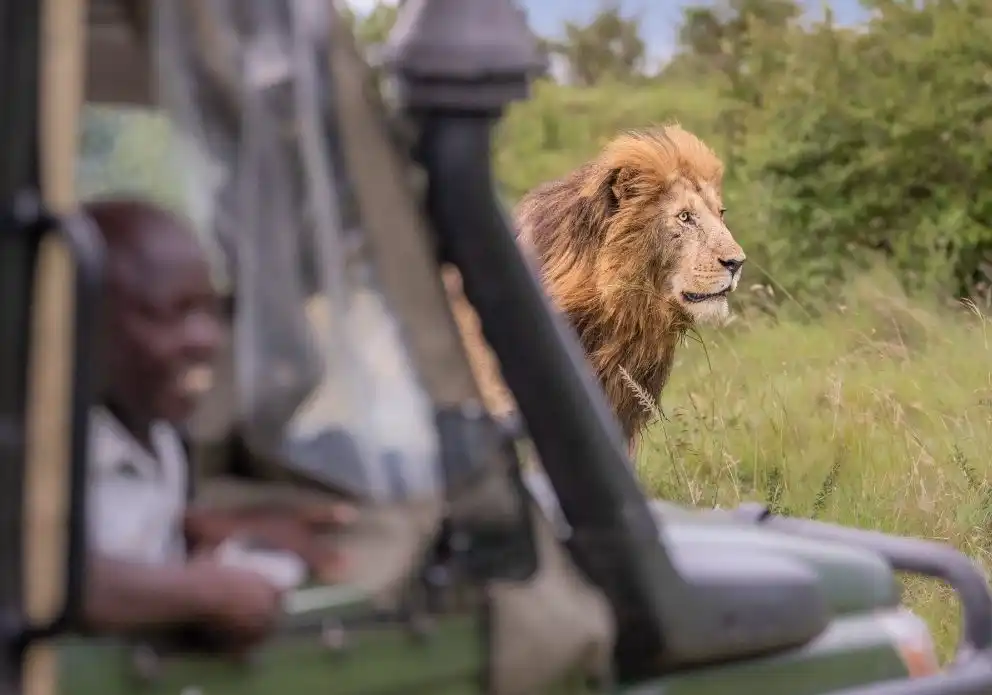
1. Masai Mara
Kenya’s Masai Mara National Reserve is one of Africa’s best-loved safari destinations that attracts visitors from near and far. Travelers are drawn to the drama of Mara River crossings during the famous Great Wildebeest Migration months, but Big Five wildlife action continues throughout the year.
2. Samburu National Reserve
Samburu Reserve is a vast safari area in northern Kenya known for the Samburu Special 5 – Gerenuk, Reticulated giraffe, Somali ostrich, Grevy’s zebra, and Beisa oryx. It is an arid landscape that is steeped in culture and traditions, where wildlife, people, and livestock walk side by side, sharing precious resources.
3. Amboseli National Park
Amboseli National Park is situated in the shadow of Africa’s tallest mountain which looms 50 km away across the border in Tanzania. This Kenya safari park has a healthy population of lions and other predators. It also offers the best views of the majestic Mount Kilimanjaro. It is also home to many of the last remaining ‘tuskers’ – giant elephants in Africa, whose tusks touch the ground.
4. Tsavo National Parks
Tsavo West and Tsavo East Parks account for the largest of Kenya’s protected spaces – and bio-diverse ecosystems from the red semi-desert and grassland savannahs to rainforests and sheer cliff faces. Tsavo is also has many of the remaining giant Africa elephants.
5. Ol Pejeta Conservancy
Ol Pejeta is situated in the Laikipia Plateau on the foothills of Mt Kenya. It is a great 362 km2 not-for-profit wildlife sanctuary that is home to our planet’s last two northern white rhinos and around 140 critically endangered Black rhinos; the biggest population of Black Rhino in East Africa.
6. Lake Nakuru National Park
Lake Nakuru is one of the most beautiful parks in Kenya. It is situated on the Great Rift Valley floor and characterized by acacia forests, waterfalls and high ridges.
Nakuru is also a birder’s paradise and was once famed for its mega-flock of flamingos, which covered the lake in a blanket of pink plumes. As well as prolific birdlife, the park is a great destination to see white rhinos, black rhinos, Buffalos, Zebras, Lions, Leopards, and the rare Rothschild’s giraffes.
7. Lake Naivasha
Lake Naivasha is also one of the prettiest parks in Kenya. The park features a deep blue freshwater lake that is encircled by forests of acacia and distinctive yellow-green fever tree. They are teeming with bird life, and the lake is a world-class bird watching destination. There is other Kenya wildlife, too: Buffalos, Giraffes, Monkeys, Antelopes, and a large hippo population.
8. Hell’s Gate National Park
Also a unique part of the Great Rift Valley is the dramatic landscape of Hell’s Gate National Park, one of the most atmospheric national parks in Kenya. Unlike its Kenya safari counterparts, the park has no predators. Its appeal comes from the beautiful scenery that was formed millions of years ago by geothermal activity.
Despite its intimidating name, you can enjoy some popular activities. The park is particularly popular with hikers, rock climbers, and cyclists. If you’re a fan of the movie “Lion King”, the rock formation at Hell’s Gate Gorge is what inspired Pride Rock.
9. Aberdare National Park
Aberdare National Park is a place to appreciate nature over wildlife in the cooler climes of the central highlands. It is perhaps the most distinctive of national parks in Kenya.
Though you’ll see wildlife, Aberdare is primarily known for its outstanding natural beauty. It is a landscape of dense forest, steep ravines, open moorland, and thundering waterfalls.
10. Mount Kenya National Park
If you are a climber or a hiker, Africa second highest mountain (5199 m), the Mount Kenya, deserves a spot near the top of your travel list.
Mount Kenya has great wild camping along some of the lesser-used trails, and rock climbing adventures on the lower peaks. This UNESCO World Heritage site is pure joy to explore, with its ecosystem of lakes, glaciers, mineral springs, and Afro-Alpine Vegetation.
11. Lake Turkana National Parks
South Island, Central Island and Sibiloi National Parks – make up the UNESCO World Heritage listed Lake Turkana National Parks. These parks surround the vivid greenish-blue Lake Turkana, the largest permanent desert lake in the world.
This area is ideal for the adventurous traveler on Kenya safari tours. It is vast, volcanic, hot, dry, and windy. Its surreal scenery looks out of this world. It resembles the surface of Mars.
12. Meru And Kora National Parks
Meru and Kora National Parks in the Great Rift Valley are the perfect places to visit if you are looking for rugged, remote, and pristine landscapes.
These Kenya national parks have vast grasslands, thorny bush, gushing rivers, and thick jungle. And you will find Elephants, Grevy’s zebras, Cape buffalo, Hippopotamus, and Masai giraffes – plus over 420 species of birds.
13. Nairobi
Nairobi is a vibrant cosmopolitan city bordering its own national park with rhinos, giraffes, lions, leopards and many other wildlife species. The city offers a range of accommodations, from boutique and large hotels to guesthouses, game lodges and B&Bs.
Visitors enjoy busy markets offering authentic art and curios, coffee shops, restaurants and museums. You can also visit an elephant orphanage and a giraffe learning centre.
14. Indian Ocean coastline
The warm waters of Kenya’s Indian Ocean coastline offer a wonderful finale to any safari. The charming town of Lamu is one of Africa’s oldest and most authentic seaside towns, with ancient narrow streets offering historic sights and rich spicy aromas – harking back to the days when the Portuguese, British and Omanis fought for control over the jewel of the Lamu Archipelago. The small coastal towns of Malindi and Watamu offer laid-back seaside charm near the Arabuko Sokoke National Reserve and Gede Ruins.
FAQs About Kenya Safaris
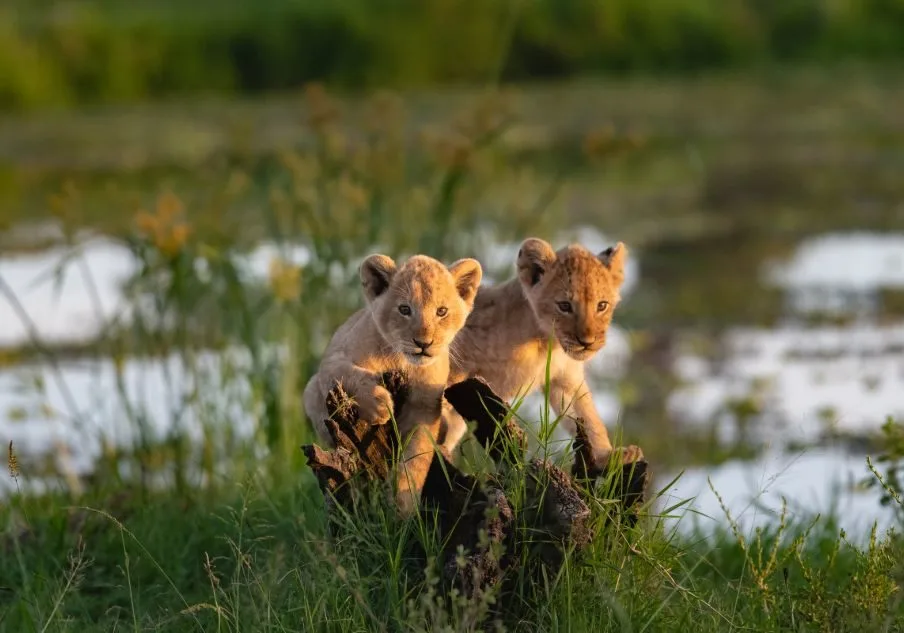
1. When is the best time to visit Kenya?
The best time to go for Kenya tours is during the dry season from June to October. During this time of the year, the weather in Kenya is normally dry and most of the safari trails are open.
This also concurs with the Great Wildebeest Migration in Masai Mara National Reserve. During this time, water sources for animals in the parks tend to become fewer and some dry up, attracting animals in numbers to those that remain.
The disadvantage is that high-season prices apply during the Dry season and crowds are larger in some game parks. The queue of safari vehicles can also take away something from your safari experience, and some parts of the Masai Mara National Reserve can be totally overwhelmed with safari vehicles during the Great Wildebeest migration.
June is one the best months to visit to visit Kenya in the dry season. Taking a Kenya safari from November to February also has its devotees.
During this time of the year, migratory birds arrive, the rains rarely disrupt safaris, and the country is transformed into a lovely shade of green. Most travelers avoid March to May because heavy rains are always possible and can transform safari trails into muddy bogs.
However, prices are lower and you can find very few other visitors and clear skies.
2. Why visit Kenya?
Exceptional wildlife viewing safaris is the main reason to visit Kenya.
Although many tourists come for the Great wildebeest migration, Kenya is excellent year-round safari destination, with a variety of world-class national parks where superb game viewing is almost guaranteed. Kenya is Big Five destination, with healthy populations of Rhinos, Lions, Leopards, Buffalos, and elephants.
Birding in Kenya is also outstanding, as is the community cultural tours. Kenya is the land of the Maasai people, Samburu People, Turkana and several others.
The great number of habitats, too, makes for wonderful scenery in Kenya – endless horizons in the Masai Mara, the snow-capped Mt Kenya, Great Rift Valley lakes, tropical forests, the starkly beautiful parks of the north, and peerless Mount Kilimanjaro views from Amboseli.
3. how much does kenya safari cost?
The cost of a Kenya safari depends on what sort of safari you want and can afford. Kenya is the original home of the African safari and offers something for everyone.
The highly exclusive Kenya safaris can cost more than $1,000 per person per night. Easily arranged mid-range Kenya safaris cost from $300 to $600 per person per day. And budget adventures start from just $125 per day.
Although safari accommodation is partially what will determine the Kenya safari price for many travelers, it can also depend on how you wish to travel between the various Kenya safaris parks. Flight transfers, usually through Nairobi city, can be expensive, but dramatically reduce the amount of time you will spend on the road; thereby maximizing the amount of time you will get to spend in the parks themselves.
Remember also that most Kenya safari packages will include accommodation, transport, all meals and activities such game drives.
4. Is safari cheaper in Kenya or Tanzania?
A Kenya safari on average is slightly cheaper than a Tanzania safari, especially if you want to take in very special reserves like Ruaha National Park, Nyerere National Park, Gombe National Park and Mahale Mountains National Park. Kenya is a far smaller country when compared to Tanzania.
Nearly all travel outside the famous Tanzania Northern safari Circuit includes transfers by light aircraft but the distances are shorter in Kenya and most parks can be explored on cheap road trips. But any price differences are marginal, and both offer great value for your safari money.
5. How many days is enough for a Kenya safari?
The recommended duration for safaris in Kenya is:
- 3 to 5 days for a quick taste of Kenya safari, covering a couple of national parks
- 6 to 8 days for visiting the top parks including Lake Nakuru, Lake Naivasha, Masai Mara, Amboseli, Samburu, Ol Pejeta.
- 9 to 11 days for covering the top national parks at relaxed pace
- 12+ days for once in a lifetime safari with maximum wildlife spotting potential
6. How safe is Kenya for tourists?
The superb safari destinations of Kenya are safe to visit and its warm, friendly people will make your safari tour a memorable one.
Although there is a long-standing travel advisory from the US State Department, it relates to very specific and strictly non-tourist areas – typically in the distant east of the country.
It is not a blanket ban and the majority of Kenya is safe to visit. In fact, thousands of American tourists visit Kenya’s incredible wildlife areas every year without incident.
But Kenya, like many other democracies across the globe, occasionally goes through short periods of political change. This is centered around the city of Nairobi, far from the country’s sensational safari areas. In fact, in some instances you will leave Nairobi immediately after landing, heading to the Lake Nakuru, Masai Mara, Amboseli, Samburu or Laikipia.
Another potential danger comes from traveling on the country’s roads – the accident rate is high. You can minimize this by not traveling at night and by flying between the parks.
The danger from wild animals is minimal; most Kenya safari tours and tour operators have excellent safety records, and you should be fine if you follow the safety briefings and instructions from guides.
7. What accommodations can I expect during my Kenya safari?
As a general rule, the higher the price of your Kenya safari, the better you can expect your safari accommodation to be.
- Campsites: At the lower end, campsites are typically basic, sometimes crowded and not always in the best locations within the safari national parks or wildlife reserves, but they are well priced and often offer ample facilities such as toilets and showers.
- Lodges: Lodges are the mainstays of the safari scene in Kenya and the quality differs significantly. Many Kenya safari lodges within the reserves and l parks have superb locations but are aging and in need of renovation, while others are luxurious and recently overhauled.
- Tented safari camps: In tented safari camps, including mobile camps, you will sleep in large, walk-in tents – they are like lodge rooms in terms of size but with canvas for walls and floor. Canvas tents mean that you can hear the sounds of the African night.
8. What Can I Expect From A Safari In Kenya?
Most days out on Kenya safaris begin with a quiet African voice waking you well before sunrise.
After dressing quickly, and taking a good coffee or tea, you go out for a few hours in a safari vehicle (with other guests, a driver, guide and sometimes a tracker) looking for wildlife – this time.
You will return to the lodge or camp mid- to late morning for a proper sit-down breakfast. A few hours of relaxation, followed by lunch, then a few hours more doing very little or siesta occupies the hottest part of the day, when even animals retreat into the shade.
Afternoon tea, often known as High Tea in a nod to colonial-era safari traditions, happens around 3 PM or 3:30 PM, then its back out looking for wildlife until after dark.
Just before sunset, you will stop for another safari institution, the ‘Sundowner’, when you will watch the African sunset while enjoying drink of your choice. You arrive back in camp in time to freshen up, then it’s dinner and off to bed, before it all starts again very early the next morning.
9. Is it better to go on a safari in Kenya or Tanzania?
In a world of tough choices, choosing between a safari in Kenya or Tanzania is one of the hardest. Both of these East African countries offer sensational scenery, excellent game viewing, different aspects of the Great Migration, and a series of bucket-list activities that defy comparison – did you know you can go chimpanzee trekking in Tanzania, for example?
To make things a little easier, we have weighed up the most important aspects of a Kenya vs Tanzania safari to help you choose the one that’s right for you:
Pros of Kenyan safaris
- Easier international access
- Quicker access to game parks
- Better tourism infrastructure
- Cheaper safaris
Pros of Tanzanian safaris
- A safer country overall
- More animals
- Fewer visitors
- A longer Great Migration window
- More iconic natural landmarks including Africa’s tallest mountain
- Zanzibar beach holiday
10. Is Uganda or Kenya better for safari?
Kenya is a better Africa safari destination than Uganda when it comes to quality Big 5 game viewing and plains wildlife generally. Its game parks tend to be far more extensive than those of Uganda and offer a more varied selection of safari lodges and tented camps.
Equally, a safari in Uganda offers several key attractions not found in Kenya or, indeed, most other safari destinations.
Foremost among these is the chance to track mountain gorillas in Bwindi Impenetrable Forest National Park and chimpanzees in Kibale Forest National Park.
Generally, Uganda offers far greater diversity when it comes to primate viewing safaris, and it matches Kenya for general birding tours. But, it tends to be stronger on forest bird watching that are difficult to see elsewhere in Africa.
11. What Should I Pack For A Safari In Kenya?
- Neutral-coloured clothing and footwear
- Lightweight Layers
- Comfortable Footwear
- Hat and Sunglasses
- Swimwear
- Safari Gear and Accessories
- Binoculars
- Camera and Accessories
- Reusable Water Bottle
- Headlamp or Flashlight
- Charging Equipment
- Personal Medications along with a basic first-aid kit
- Sunscreen and Insect Repellent
- Toiletries
- Travel Documents
- Cash and Cards
Want To Visit Kenya?
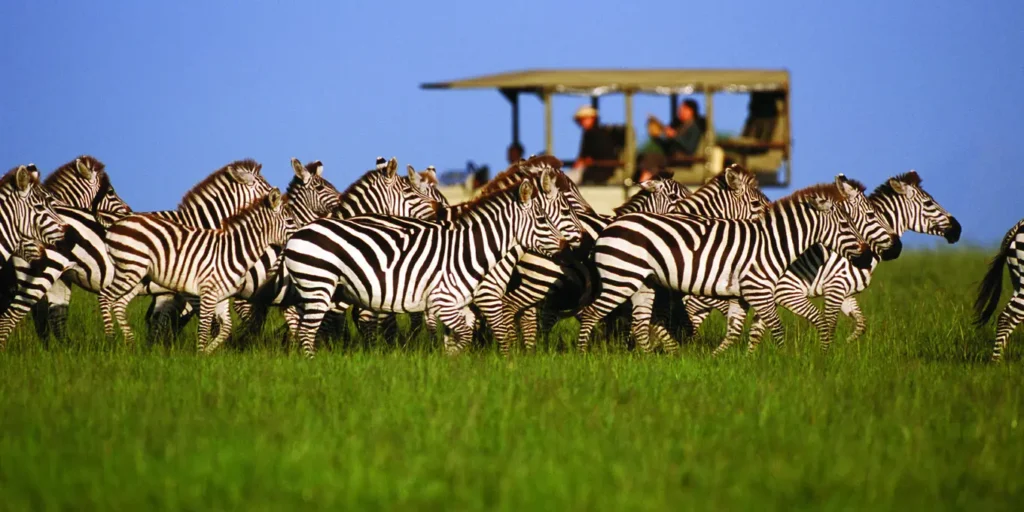
Chat with someone who’s been there. Get in touch with one of our Kenya Travel Experts to help tailor-make a Kenya safari holiday that’s right for you:
